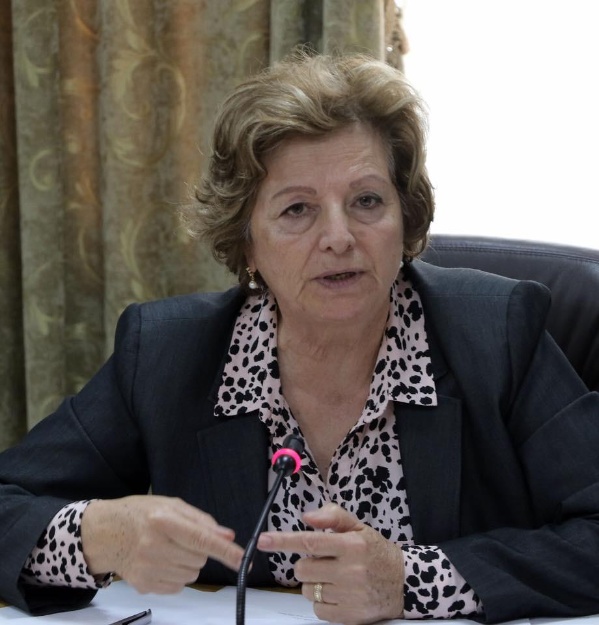Amal Haddadin obtained a degree in math after graduating from high school in the 1980s and worked as a teacher for a while, but numbers never brought out the passion in her, nor were they the fulfillment of her dreams.
It was not long, therefore, until Haddadin, lawyer, and consultant at the Jordanian National Commission for Women, decided to pursue a law degree from the University of Jordan. She jokes about being in the same classroom as her son: “My son could not escape from me, neither at home nor at the university.”Haddadin graduated with “excellence” in 1989 and has been pursuing her career for over 30 years now.
Her experience as a lawyer enabled her to observe that the justice system expanded in terms of the number of courts and developed in terms of legislation, witnessing, at the same time, an increase in the number of competent lawyers and judges. That does not mean the judiciary system does not face occasional challenges; among them, the lack of gender-sensitive data. The essence of a civic state is the rule of law and a country’s development depends greatly on the independence and competence of its judiciary system, stresses Haddadin, adding that the rule of law is only powerful if the judiciary system, its main pillar, is competent and active.
According to Haddadin, the right to litigate serves mainly as a “protector of basic human rights and freedoms”. As such, an effective mechanism enabling individuals’ access to justice is absolutely necessary and an important component of ensuring their human rights. She says justice is achieved via effective legal justice mechanisms that eliminate oppression and legislation and procedures that are gender-sensitive and ensure equality for all. Women are often deterred from seeking legal justice by the social stigma attached to it and the high legal fees; that obviously means restricted access to justice and independent decision-making, says Haddadin.
To address this, she says, all state authorities and judicial bodies are required to imbue their work with the spirit of civic responsibility, develop capacities, improve judges’ work environment, build the judicial system according to specialty, develop a judicial promote integrity, and constantly upgrade the system’s supporting departments and their staff.
Haddadin believes an effective justice for citizens requires simple and fast litigation procedures, because: “Delayed justice equals no justice.” She also believes that better information dissemination and the provision of legal consultations can be done by training judges who should also be trained in international jurisprudence to avoid an occasional conflict with international instruments Jordan signed.
Haddadin stresses the importance of facilitating witness-related procedures and enhancing and regularizing reporting processes for more efficiency. She also highlights that the government must partner with civil society organizations and the private sector, support the justice sector and raise awareness about reform initiatives, and promote the principles of justice, accountability, and the rule of law.
Haddadin is an active member of the Justice Development Forum and has tremendous contributions especially in combating all forms of discrimination and violence against women, through legal reports and research papers. and through the provision of legal consultation and representation.


